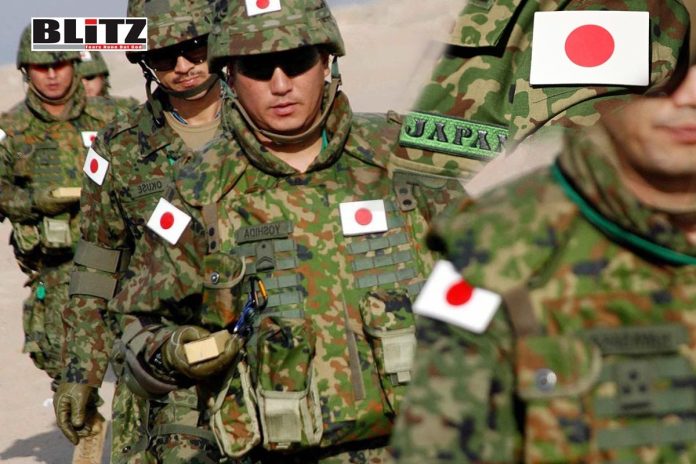In the intricate tapestry of global geopolitics, the allocation and trajectory of defense budgets serve as critical indicators, shedding light on the strategic imperatives and perceived threats shaping nations’ security postures. The recent unveiling of China’s defense budget for the fiscal year 2024 has reignited longstanding debates surrounding military expansionism and regional stability. With a notable 7.2 percent increase over the previous year, China’s defense expenditure now stands at approximately 1.67 trillion yuan ($234.5 billion), a figure that warrants closer examination within the broader context of geopolitical dynamics.
China’s continual maintenance of single-digit defense spending growth over nine years reaffirms its defensive posture. Nevertheless, despite avowals of defensive motives, China’s military investments evoke apprehension among neighboring nations, notably Japan. Japan, witnessing a staggering 16.5 percent surge in its defense budget for fiscal year 2024, is swiftly advancing towards heightened militarization. This trajectory has elicited concerns domestically and internationally, prompting scrutiny of Japan’s strategic intentions. The juxtaposition of China’s steady growth and Japan’s rapid escalation in defense expenditure underscores the complex dynamics of regional security and the interconnectedness of geopolitical decisions.
Comparing China and Japan’s defense spending paths offers insight into regional dynamics and historical context. Japan’s adoption of the “three security documents” and its unprecedented surge in defense expenditure echo echoes of its militaristic history, raising questions about transparency and strategic intent. Critics, including domestic voices like the Asahi Shimbun, highlight concerns regarding Japan’s military expansionism and its potential impact on regional stability. The juxtaposition underscores the delicate balance between national security imperatives and regional perceptions. Japan’s actions provoke introspection, prompting stakeholders to assess the ramifications of its militarization efforts. As the nation navigates this trajectory, transparency and dialogue are crucial to address concerns and foster mutual understanding within the region. Ultimately, the unfolding narrative reflects a complex interplay of historical legacies and contemporary strategic imperatives shaping East Asian geopolitics.
At the core of discussions on defense spending lies the issue of its magnitude. Does a 7.2 percent rise in China’s defense budget truly stand out, and how does it fare against international standards? A nuanced analysis incorporating horizontal and vertical comparisons reveals a multifaceted terrain. While China’s military spending as a proportion of GDP remains modest at below 1.5 percent, its per capita military outlay pales compared to Western counterparts. The disproportionate pressure on NATO nations, Japan included, to meet arbitrary expenditure targets accentuates the complexity of evaluating defense budgets on a global scale. Thus, discerning the true import of defense spending mandates a comprehensive understanding of diverse metrics and contextual factors, reflecting the intricate interplay of national security imperatives and international dynamics.
Moreover, the specter of reverse causation looms large in discussions surrounding defense spending dynamics. Western pressure, epitomized by Japan’s own military expansionism, has inadvertently fueled China’s need to bolster its national defense capabilities. The perceived threat posed by external interference forces, particularly regarding Taiwan, has compelled China to adopt a defensive posture aimed at safeguarding its sovereignty and territorial integrity. Yet, rather than acknowledge the geopolitical realities driving China’s military modernization, critics exploit these developments to perpetuate the narrative of a “China military threat theory.”
At the heart of this discourse lies the question of China’s role as a responsible global actor. China’s commitment to restraint and non-aggression is reflected not only in its defense spending but also in its diplomatic engagements and adherence to international norms. Attempts to portray China as a hegemonic force, divorced from its historical and geopolitical context, serve only to undermine prospects for constructive dialogue and mutual cooperation.
Amidst the intricate web of defense spending complexities, stakeholders are urged to transcend narrow narratives of military rivalry and embrace a more expansive vision of regional security and collaboration. Rather than yielding to fear-driven rhetoric and zero-sum mentalities, it is imperative to prioritize inclusive frameworks that advocate for transparency, dialogue, and mutual trust. Only through genuine cooperation can the Asia-Pacific region unlock its full potential as a bastion of enduring peace, prosperity, and stability.
As China and Japan navigate their respective trajectories, it’s essential to acknowledge the interconnectedness of their security interests and the mutual imperative of fostering an environment conducive to peaceful coexistence. Let us break free from the constraints of historical baggage and the specter of insecurity. Instead, let us pioneer a new paradigm characterized by cooperation, empathy, and shared aspirations for a future marked by brightness and security.




